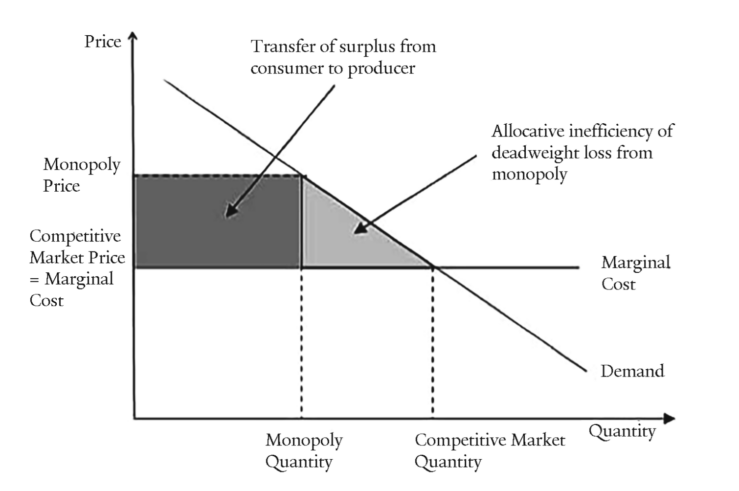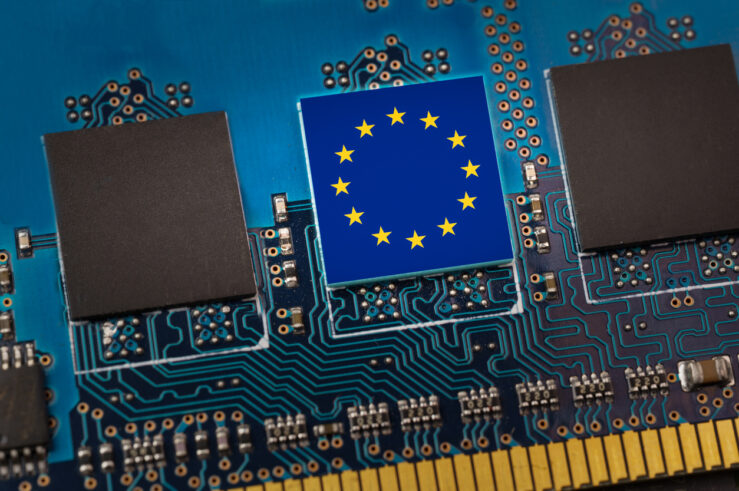Showing results for: “Valid C1000-170 Study Materials 🕗 C1000-170 Latest Exam Answers 🏮 Trusted C1000-170 Exam Resource 🦍 Search on 【 www.pdfvce.com 】 for 【 C1000-170 】 to obtain exam materials for free download 🐀Valid C1000-170 Dumps Demo”
Suggested Redline Edits to the DOJ’s Letter to Judiciary Committee Leadership
The Biden administration finally has taken a public position on parallel House (H.R. 3816) and Senate (S. 2992) bills that would impose new welfare-reducing regulatory constraints on the ability of large digital platforms to engage in innovative business practices that benefit consumers and the economy. The administration’s articulation of its position—set forth in a March ... Suggested Redline Edits to the DOJ’s Letter to Judiciary Committee Leadership
US-EU Agreement Hopes to Keep Transatlantic Data Flowing
Though details remain scant (and thus, any final judgment would be premature), initial word on the new Trans-Atlantic Data Privacy Framework agreed to, in principle, by the White House and the European Commission suggests that it could be a workable successor to the Privacy Shield agreement that was invalidated by the Court of Justice of ... US-EU Agreement Hopes to Keep Transatlantic Data Flowing
Senate Bill Looks to Rebalance ‘Internet Freedom’ and Creators’ Rights
All too frequently, vocal advocates for “Internet Freedom” imagine it exists along just a single dimension: the extent to which it permits individuals and firms to interact in new and unusual ways. But that is not the sum of the Internet’s social value. The technologies that underlie our digital media remain a relatively new means ... Senate Bill Looks to Rebalance ‘Internet Freedom’ and Creators’ Rights
Call for Submissions on FTC UMC Rulemaking Authority
The Limits of FTC UMC Rulemaking Symposium There is widespread interest in the potential tools that the Biden administration FTC may use to address a range of competition-related and competition-adjacent concerns. Among other issues, there have been indications that the FTC may use its broad UMC authority under Section 5 of the FTC Act to ... Call for Submissions on FTC UMC Rulemaking Authority
Final DMA: Now We Know Where We’re Going, but We Still Don’t Know Why
After years of debate and negotiations, European Lawmakers have agreed upon what will most likely be the final iteration of the Digital Markets Act (“DMA”), following the March 24 final round of “trilogue” talks. For the uninitiated, the DMA is one in a string of legislative proposals around the globe intended to “rein in” tech ... Final DMA: Now We Know Where We’re Going, but We Still Don’t Know Why
Toward a Dynamic Consumer Welfare Standard for Contemporary U.S. Antitrust Enforcement
For decades, consumer-welfare enhancement appeared to be a key enforcement goal of competition policy (antitrust, in the U.S. usage) in most jurisdictions: The U.S. Supreme Court famously proclaimed American antitrust law to be a “consumer welfare prescription” in Reiter v. Sonotone Corp. (1979). A study by the current adviser to the European Competition Commission’s chief ... Toward a Dynamic Consumer Welfare Standard for Contemporary U.S. Antitrust Enforcement
The DMA and Antitrust: A Liaison Dangereuse
As the European Union’s Digital Markets Act (DMA) has entered the final stage of its approval process, one matter the inter-institutional negotiations appears likely to leave unresolved is how the DMA’s the relationship with competition law affects the very rationale and legal basis for the intervention. The DMA is explicitly grounded on the questionable assumption ... The DMA and Antitrust: A Liaison Dangereuse
Antitrust Policy and National Security Interests
U.S. antitrust policy seeks to promote vigorous marketplace competition in order to enhance consumer welfare. For more than four decades, mainstream antitrust enforcers have taken their cue from the U.S. Supreme Court’s statement in Reiter v. Sonotone (1979) that antitrust is “a consumer welfare prescription.” Recent suggestions (see here and here) by new Biden administration ... Antitrust Policy and National Security Interests
The Internationalization of Due Process, Federal Antitrust Enforcement, and the Rule of Law
The acceptance and implementation of due-process standards confer a variety of welfare benefits on society. As Christopher Yoo, Thomas Fetzer, Shan Jiang, and Yong Huang explain, strong procedural due-process protections promote: (1) compliance with basic norms of impartiality; (2) greater accuracy of decisions; (3) stronger economic growth; (4) increased respect for government; (5) better compliance ... The Internationalization of Due Process, Federal Antitrust Enforcement, and the Rule of Law
How Not to Promote US Innovation
President Joe Biden’s July 2021 executive order set forth a commitment to reinvigorate U.S. innovation and competitiveness. The administration’s efforts to pass the America COMPETES Act would appear to further demonstrate a serious intent to pursue these objectives. Yet several actions taken by federal agencies threaten to undermine the intellectual-property rights and transactional structures that ... How Not to Promote US Innovation
Does the Market Know Something the FTC Doesn’t?
During the exceptional rise in stock-market valuations from March 2020 to January 2022, both equity investors and antitrust regulators have implicitly agreed that so-called “Big Tech” firms enjoyed unbeatable competitive advantages as gatekeepers with largely unmitigated power over the digital ecosystem. Investors bid up the value of tech stocks to exceptional levels, anticipating no competitive ... Does the Market Know Something the FTC Doesn’t?
Unpacking the Flawed 2021 Draft USPTO, NIST, & DOJ Policy Statement on Standard-Essential Patents (SEPs)
Responding to a new draft policy statement from the U.S. Patent & Trademark Office (USPTO), the National Institute of Standards and Technology (NIST), and the U.S. Department of Justice, Antitrust Division (DOJ) regarding remedies for infringement of standard-essential patents (SEPs), a group of 19 distinguished law, economics, and business scholars convened by the International Center ... Unpacking the Flawed 2021 Draft USPTO, NIST, & DOJ Policy Statement on Standard-Essential Patents (SEPs)
















